In an industry where junior artists rarely get noticed, Nimai Ghosh has managed to break the barriers with a string of eye-catching performances in films by Mrinal Sen, Bappaditya Bandopadhyay, Sandip Ray and Suman Ghosh which have elicited both acclaim from filmmakers and popular recall. The veteran actor spoke to Soujannya Das and Cinemaazi editor Shantanu Ray Chaudhuri…
LIG Quarter, Block 6, Room 9, Ultadanga. It’s not an address that will have frenzied crowds thronging for a glimpse of the person who resides there. But for the curious wayfarer its resident could offer a kaleidoscope of cinematic memories. Meet Nimai Ghosh, actor par excellence, for long lost in the labyrinthine maze that in film industry circles is called ‘junior artists’.
I first noticed him in a scene-chewing act in Suman Ghosh’s Peace Haven, where as a caretaker at a mortuary he is giving the film’s three protagonists – Soumitra Chatterjee, Paran Bandopadhyay and Arun Mukherjee – a rundown on its facilities. Nimai Ghosh is a scream in the sequence with his deadpan responses, and if it is possible to overshadow such luminaries, he does it with nonchalant elan. I reached out to Suman Ghosh who also pointed me to Nimai Ghosh’s 30-second cameo in the little gem of a film, Shyamal Uncle Turns off the Lights, where too he lights up the scene with his all-too-brief cantankerous act.
As the director observes, ‘I have been fortunate enough to work with him in three films. And I can say without a doubt that I have seldom come across such a dependable actor. And when I say dependable, I mean he understands the scene and gets to its truth, its core requirement, without having to be prodded, as if it runs in his veins. He carries it in his deepest recess from where he retrieves it the moment the camera comes on. And then he delivers it at the perfect pitch, getting it just right. He is so believable in the way he gets his characters across.’
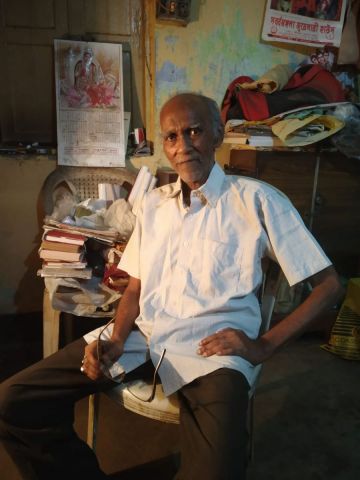
Nimai Ghosh is waiting for us at the one-room flat which has an attached kitchen and bathroom. He lives alone. He says, a slight smile lighting up his wizened face, ‘I’m not married. I never really felt like marrying, you could probably say that I have not found a suitable match yet.’ The seventeen-year-old house, he tells us, was given to him years back by the government for his contribution as an artist. The wall paint is peeling off in several places, there’s no cot in the room, he sleeps on a thin piece of plywood with a quilt on it. In a corner of the room there’s a small alcove with icons of deities. There’s a stack of flowers, and a dim yellow light lends a plangent glow to the surroundings. The only other piece of furniture is a small black cupboard and a chair. He tells us that he is an avid reader, proof of which is a stack of books, copies and documents lying on a chair. He loves writing, a few of his stories have been published in newspapers. He looks forward to writing stories inspired from his own life…
What are your early memories of watching a film shoot?
I have been working in the industry for more than fifty years. I love acting. I was fourteen or fifteen years old when one day one of my brothers from the neighbourhood took me to a shooting set. It was Uttam Kumar and Suchitra Sen’s film, Sanjher Prodip, being shot in a studio at Dakhineswar. The duo was a craze at that time. It was very difficult to get inside a film studio those days. I remember Uttam Kumar was wearing a blue shirt with a yellow dhuti and Suchitra was wearing a sky-blue sari. I was really impressed by everything I saw around me.
My brother told me that you could visit a studio only if you acted in films. He gave me a few contacts and addresses and I used to go and visit those places to audition. I then started visiting Tollygunge. I was exposed to the film industry from a very young age. There was this ramshackle teashop named ‘Nirmal-dar teashop’. Girls and boys from different places used to come here. Junior artists were called suppliers back then. I started working as a supplier near the film studio hoping that I would be able to get inside the studio. I remember enjoying myself inside the shooting set with others. Song sequences were shot and we used to sit and enjoy them throughout the day. I was selected for a film, Durlov Jonom, but as it so happens in this field, the film didn’t happen.
My grandmother (mother’s mother) used to stay with us. She saved me a lot from my father when I used to put my books aside and run away from home to watch plays (laughs). My father never really supported me but later when he saw what I had managed to achieve he stopped telling me anything.
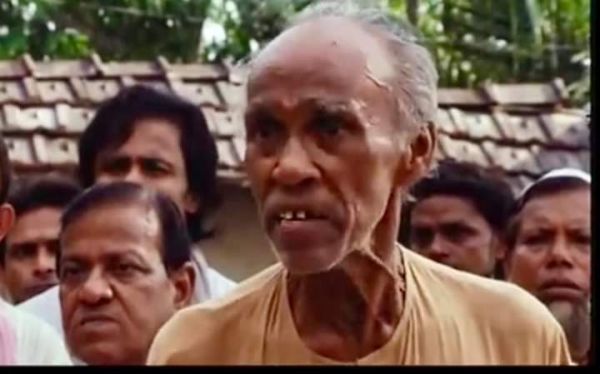
Did you do theatre before coming to films?
Everyone told me that to act in films I should ‘learn’ acting. I started doing theatre. I remember visiting Sisir Bhaduri. I told him that I wanted to learn acting. To which he replied that I should complete my education and then come to him. In those days being educated was considered essential to learn acting. But, of course, if you ask about my academic qualification, I have been able to complete my school finals only. As an artist and a creator I do not feel that academic qualification is a mandate. I am an avid reader. I gather knowledge by reading books. I read a lot of books on films, acting and theatre. My favourite authors are John Gassner, Konstantin Stanislavski (Building a Character, My Life in Art) and Girish Ghosh. Later I started doing theatre with my neighbourhood group. I remember watching Roktokorobi at the Girish Natya Competition, which went on for one and a half months. It moved me immensely. I love theatre, it’s a great training ground. I later joined the theatre group Nandikar. I met my ‘guru’ Ajitesh Banerjee there. I will, if possible, direct a play one day.
Which is the first film that you remember being a part of?
While I was doing theatre with Nandikar, many big film personalities used to come to watch our shows. Mrinal Sen was one of them. He made a movie, Ichhapuran, based on a short story by Rabindranath Tagore. He cast me in the film with others. But if you ask me about my first film, I remember doing a small part in Sebanam starring Abanish Banerjee and Chhanda Debi. Though I had nothing much to do … I was just a part of the crowd.
Tell us about some of your more memorable experiences in films.
I have acted in almost 200 films. I have worked with Mrinal Sen in many films. I never got to act in a Satyajit Ray film but I acted in Uttoran (The Broken Journey), directed by Babu (Sandip Ray), whose screenplay was written by Ray. While I was doing theatre at Nandikar I did a play called Amer Manjari (Mango Blossoms) based on Chekhov’s Cherry Orchard which Satyajit Ray watched. He praised me after watching the play. Later, I was told, he came looking for me. By the time I had already left Nandikar. The desire to act in a Satyajit Ray film will always remain unfulfilled. Even one of Satyajit Ray’s assistant later asked me why I didn’t do a Ray film. I have been a part of many films directed by Babu. I remember meeting Satyajit Ray while I was shooting for one of Sandip Ray’s TV film series written by him.
I have had a very enriching experience with my directors. Suman Ghosh is very different from all the other directors I have worked with. He has the zeal to create something new and unique. I really liked working with him. He is very choosy about the films he wants to make. That is what I like the most about him. With Babu, if you watch his very first film, you are going to get a feel of a ‘Ray’ film. In his later directorial ventures he developed his own style. He is a very educated person. He is very disciplined when it comes to work. Of course, it is all because he had a different schooling. Mrinal Sen was fascinating. Usually every director provides the script to the actor beforehand. He was completely the opposite. He used to snatch the script away and ask the actors to perform on the spot spontaneously. He was very open to actors contributing and enhancing their dialogues while delivering it in the set.
Which are the films that are special to you?
There are films which I did with Bappaditya Bandopadhyay like Kaal, Silpantar, Kantatar, Devaki (which starred Suman Ranganathan). My first film with Soumitra Chatterjee, Agradani, directed by Palash Banerjee, based on a story by Tarasankar Bandyopadhyay, is also a very special film because it challenged me as an actor. I also liked working with Suman Ghosh in Peace Haven. Utpalendu Chakraborty’s Chokh is very important to me as I acted with Om Puri. Ekti Bangali Bhooter Golpo is the first Zee Bangla Original where the story revolves around me.
Any anecdote which you would like to share from your early shooting days?
In Spandan, directed by Biplab Roy Chowdhury, I worked with Amol Palekar. Let me share an incident with you. During the shoot Biplab called and told me that Amol Palekar didn’t want me to deliver my first two dialogues. Instead he’d say the dialogue. Every time I wanted to deliver my dialogues, Amol Palekar interrupted in the middle and didn’t let me go on. So when next it was my chance to deliver the dialogue I placed my hands over his mouth, narrated my lines and didn’t let him speak (laughs out loud)!
Is there a certain film or a role for which people recognize you the most?
I played one of the four main characters in Mrinal Sen’s Parashuram. It was a big role. I remember that I went to watch Charlie Chaplin’s Modern Times in the theatre and it was houseful. People were selling tickets in black. I was about to leave when a person from inside the glass door came out and started shouting ‘Parashuram, Parashuram’. He had recognized me and told me, ‘Arre tum toh hero hai, bhai, idhar ticket lene kyun ghusta hai?’ (You are a hero, why have you come here to buy tickets?) and then he gave me a rupee-two ticket for free. He praised me for my performance in the film. It really felt nice. Today many people come up to me and say that they’ve watched me in many films. I feel good when people recognize me for my work.
Sometime ago Bartaman newspaper published an interview with me. The editor of the newspaper told me that he had become famous because of me (laughs). Many people called him up and said that we’ve watched Nimai Ghosh in many films and we absolutely love his acting. Many of them appreciated him for doing a story on me and bringing me in the limelight. This made me feel that I have made a small place in the audience’s heart. Otherwise artists like me get no respect here. Every second person here is a junior actor. Few people today know how to make films. They always copy from the south.
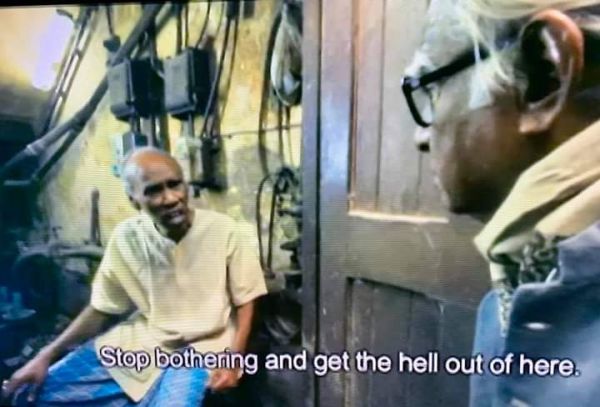
What are the recent projects that you have been a part of? How difficult and challenging has it been to get work in the pandemic?
Like others, I am struggling to get work in the pandemic. I was hospitalized towards the end of 2019. I had to go through a prostate operation. The condition was serious. I had to be admitted in the hospital immediately. It was very frustrating. I was offered a role in a web series, Tansener Tanpura, produced by SVF. Everything was decided but on the day of script-reading I was hospitalized. They were shocked to know my condition. I was very sad that I couldn’t do the project.
As soon as I started recovering, I was back at work starting with the dubbing of Tathagata Mukherjee’s Bhotbhoti. After a month, when I went to the hospital for a follow-up check-up, I met Dr Ranjan Kumar Dey. The nurse told me that the doctor treating me often had celebrity patients like me. To which I replied, ‘I am not a celebrity’ (laughs). Then I got to know that he had operated on Amitabh Bachchan too. He recognized me and waived off my fee (smiles). I was really grateful to him for the respect he gave to me.
A recent film in which I really enjoyed working is Sujoy Ghosh’s Bob Biswas, directed by his daughter Diya Annapurna, starring Abhishek Bachchan. The film’s narration starts with me. I enjoyed playing the role. I am grateful that I could do the role and to me what matters the most is the amount of respect the team gave to me (smiles). I shot the film whole night though I was not keeping well. They did everything for me including helping me to wear my socks. Diya Annapurna is a very intelligent girl though her father was always at hand, teaching and helping her.
There are a few films which are yet to release. One of them is director Saibal Mitra’s Jokhon Kuasha Chilo, based on a story by Syed Mustafa Siraj. Haranath Chakraborty’s horror movie Epar Opar is also a film which I’m part of and is yet to release. Many directors are planning to work with me in the future. Amongst the upcoming projects, I’m a part of Kaushik Ganguly’s Kabaddi Kabaddi. He told me that he’s thinking of something big with me. He respects me a lot.
Do you have a dream role?
I don’t have any such dream role. But I always feel that my talent as an actor has remain unused. Many people ask me why I don’t do more films. Unfortunately, that is not in my hands. As an artist I always feel that you need to be very honest to your art. I’m still searching for good work, probably that is what makes me go on.
Are there any forums that reach out to artists to help them when there’s no work?
The people from such forums do help actors financially but I don’t really think that they are helping artists to get work. Initially, when I started, I used to do a job. But I only act now. That is my only source of income.
What are your thoughts on web series and web streaming/OTT platforms?
I don’t really like the concept of web series. Though OTT platforms are generating employment in the industry, nothing can replace films and the joy of making them.
Interview conducted in collaboration with Shantanu Ray Chaudhuri
Tags
About the Author
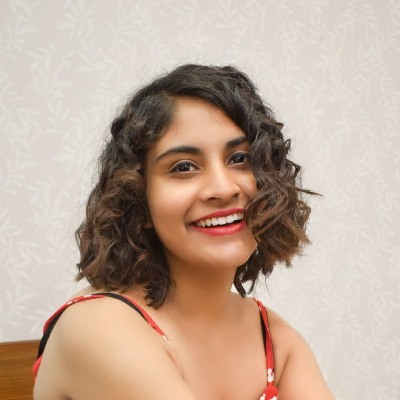
Soujannya Das, presently pursuing her bachelor’s degree in journalism and mass communication at the Bhawanipur Education Society College, Kolkata, has contributed as an interviewer and writer for various platforms, namely TTIS (The Telegraph) and Film Companion. She is currently working as a PR and social media manager for Inkcollab PR, where she is involved in promoting films, handling both national and international clients such as MovieSaints. She is passionate about films, be it curation or making. She has worked as an assistant director in the Bengali film industry and is currently working as a film curator. She has received several awards in various aspects of filmmaking all through her school life.






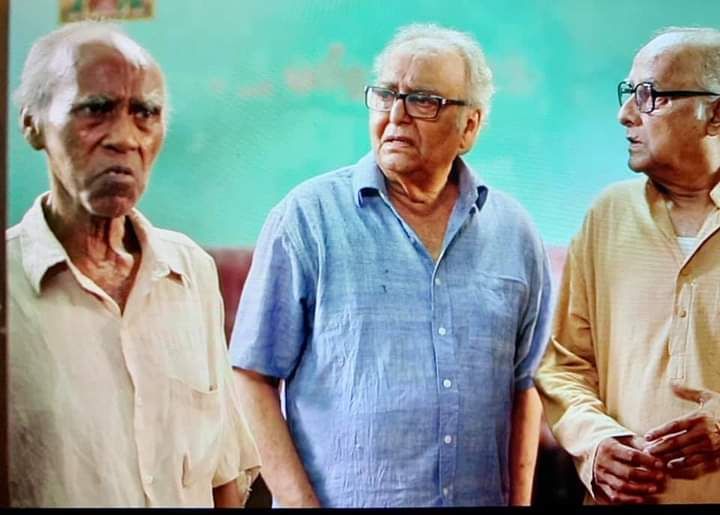
.jpg)


